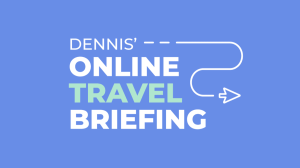Google and Booking Face European Objections Over Competition
Skift Take

Dennis' Online Travel Briefing
Editor’s Note: Every Wednesday, Executive Editor and online travel rockstar Dennis Schaal will bring readers exclusive reporting and insight into the business of online travel and digital booking, and how this sector has an impact across the travel industry.In the past week, the European Commission has issued two separate statements of objections to Google and Booking Holdings over antitrust concerns.
The Commission preliminarily found that Google's advertising technology services have for at least almost a decade broken the European Union's antitrust laws because Google "self-preferences" these services and tools, essentially freezing out competitors. That gives Google the ability to charge higher advertising fees, and this leads to higher prices for consumers, according to the Commission.
"Google is active on both sides of the market with its publisher ad server and with its ad buying tools and holds a dominant position on both ends," the Commission stated. "Furthermore, it operates the largest ad exchange."
If the Commission ultimately finds that Google is indeed at fault, the Commission said, "a behavioral remedy" would be unlikely enough to cure the problem.
"The Com

